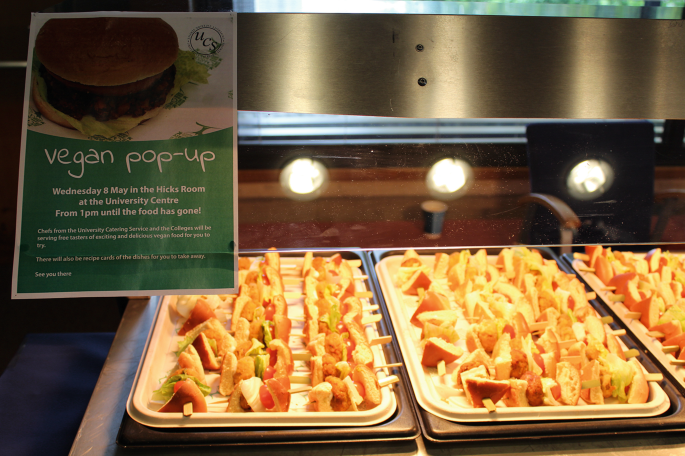It is important to remember that decision-makers in the retail and catering sectors can act as key policy-makers for transitions to sustainable diets. By curating menus, designing supermarket layouts and choosing which foods to source, when and from where, they set the parameters that affect how hundreds of customers and diners choose what to buy and eat. Indeed, animal advocacy charities — including Humane Society International and PETA (People for the Ethical Treatment of Animals) — have pivoted to providing vegan training for chefs and working with caterers, rather than focusing on campaigns promoting veganism to individual citizens (C. Tarry, personal communication) As well as direct effects, positive spill-overs are possible: individuals might find it easier to change their own domestic dietary habits if they have experienced good vegetarian and vegan food in an organizational setting, such as a workplace cafeteria.
In the private sector, sales of meat and dairy alternatives grew by almost 10% per year between 2010 and 2020 in the EU and UK, though they remain a small part of the overall market at 0.7% for meat and 2.5% for dairy7. In the UK, most pizza chains now offer pizza with vegan cheese, and many high street coffee chains offer a variety of plant-based milks. Some supermarkets have trialled placing meat alternatives in meat aisles to encourage ‘flexitarian’ shopping habits8. One supermarket aims to increase sales in meat alternatives by 300% by 20259 and others have committed to reducing the cost of their own-brand plant-based products to match the price of their meat or dairy counterparts10. However, no British supermarkets have publicly available targets to reduce meat sales9. If meat alternatives do not reduce meat consumption and instead displace whole grains, legumes and vegetable consumption, this could have detrimental effects on both health and the environment. It is clearly more important to examine whether organizations have reduced meat and dairy sales, rather than simply increased sales of meat alternatives.
In contrast to the private sector, some public sector organizations have explicit meat and dairy reduction targets. Public Sector Catering — which represents the food service in the public sector in the UK, including outlets in schools, hospitals, care homes and prisons — announced their outlets will serve 20% less meat (9 million kg; equivalent to 45,000 cows or 16 million chickens) to meet the recommendations of the UK’s Committee on Climate Change, although they have not specified by when (http://20percentlessmeat.co.uk)11. One quarter of the population of the UK eats meals from these caterers so this change will affect millions of people. The Eating Better Alliance, of over 60 organizations, is campaigning for halving meat and dairy consumption in the UK by 20309. At the regional government level, mayors from 14 cities in the UK and worldwide (including London, Tokyo, Lima and Los Angeles) have signed up to the Good Food Cities Declaration, pledging to reduce meat served at public institutions to align with the Planetary Health Diet12, which in the UK would involve an approximately 75% reduction in meat served — by some margin the most ambitious of the schemes outlined here.



